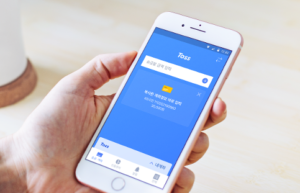
Fintech In South Korea: Regulators Step In To Boost Innovation
by Fintech News Hong Kong March 28, 2018South Korea’s financial regulator is planning to launch a regulatory sandbox to allow fintech startups to introduce new products and services without the need to comply with existing regulations. The move is intended to boost fintech development and came in response to criticism over the government’s so-called “restrictive fintech policies.”
Under the new initiative, which was unveiled last week, fintech startups will be exempted from regulations for two years if their apps or services are determined to be “innovative” by the Financial Services Commission (FSC), officials said. If a product unexpectedly hurts consumers’ interest, the FSC could order the firm to stop offering such services.

Choi Jong-ku, Chairman FSC, via Twitter
Additionally, the authority said it will introduce new regulations to support the fintech industry. The FSC’s chairman Choi Jong-ku said the authority is committed to helping enhance financial services through the introduction of new payments systems and use of communication technologies, as well as blockchain, among other technologies.
The FSC chairman said the potential that these advanced technologies will lead the country to innovative growth. The new policy posture is expected to improve services for consumers while creating new jobs.
The Moon Jae-in administration last year named fintech one of its eight leading innovative growth industries, but South Korea’s commitment towards fintech can be traced back to early 2015 when the country launched a government-led campaign to foster the industry. In March 2017, the FSC said it would commit 3 trillion won (US$2.6 billion) to support nascent fintech firms in the country over the next three years.
Fintech investment in South Korea jumped to 777 billion won (US$722 million) as of June 2016 from 473 billion won (US$439 million) in 2015 and 87 billion won (US$80 million) in 2014, government data showed.
“But we can’t be satisfied with that,” Yim Jong-yong, the previous chairman of the FSC, has said at a meeting with the heads of 15 related financial and technology companies. “It’s a reality that the gap between South Korea and such leading countries as the US, Britain and China still exists.”
South Korean fintech startups
Compared with the likes of the US or China, South Korea’s fintech industry remains tiny. In comparison, in 2016, US fintech startups raised US$6.2 billion, Chinese fintech startups raised US$7.7 billion, and UK startups raised US$783 million, according to Deloitte.
Despite the obvious gap with countries such as China or the US, the South Korean fintech startup scene has been growing rapidly in the past years, now counting some 400 fintech companies. Several of them have reached considerable sizes and gained global recognition.

Toss mobile app
One notable startup is Viva Republica, which provides the popular mobile payments platform Toss. Toss has transacted over US$3 billion in just two years and in 2017, it closed a US$48 million Series C funding that included participation from payments giant PayPal.
South Korean fintech startup AIM, a Startupbootcamp Fintech Singapore alumnus, launched last year one of the country’s first robo-advisors with the mission to “provide mobile-based, personalized asset management services that are convenient and low fee.” The service now boasts about 2,000 users.
Kakao, the operator of the country’s leading messaging app KakaoTalk, has also been making inroads into the fintech business. Its affiliate Kakao Pay is a payment system that’s built-in on the KakaoTalk messenger app to provide services such as peer-to-peer payments, paying bills, membership benefits, and more.
Last year, Kakao Pay rolled out a blockchain-based mobile authentication service. Earlier this month, the firm announced that it hit one million users for its Kakao Pay Authentication product.
The company claims the service eases the authentication process between the institution and customers by digitally documenting customers’ signatures. A total of 20 institutions and companies, including insurer AIA Life Korea and the Korea Transportation Safety Authority, are using the service. The firm launched its digital bank Kakao Bank in July 2017 and recruited over 5 million users in less than a year.
South Korea’s other digital bank is K-Bank which began operating in April last year. It has extended about 1.14 trillion won (US$1 billion) in consumer credit loans including deposits as of January this year, exceeding its earlier target. It plans to expand its business territories into apartment loans and credit cards starting this year.
Featured image: Unsplash








